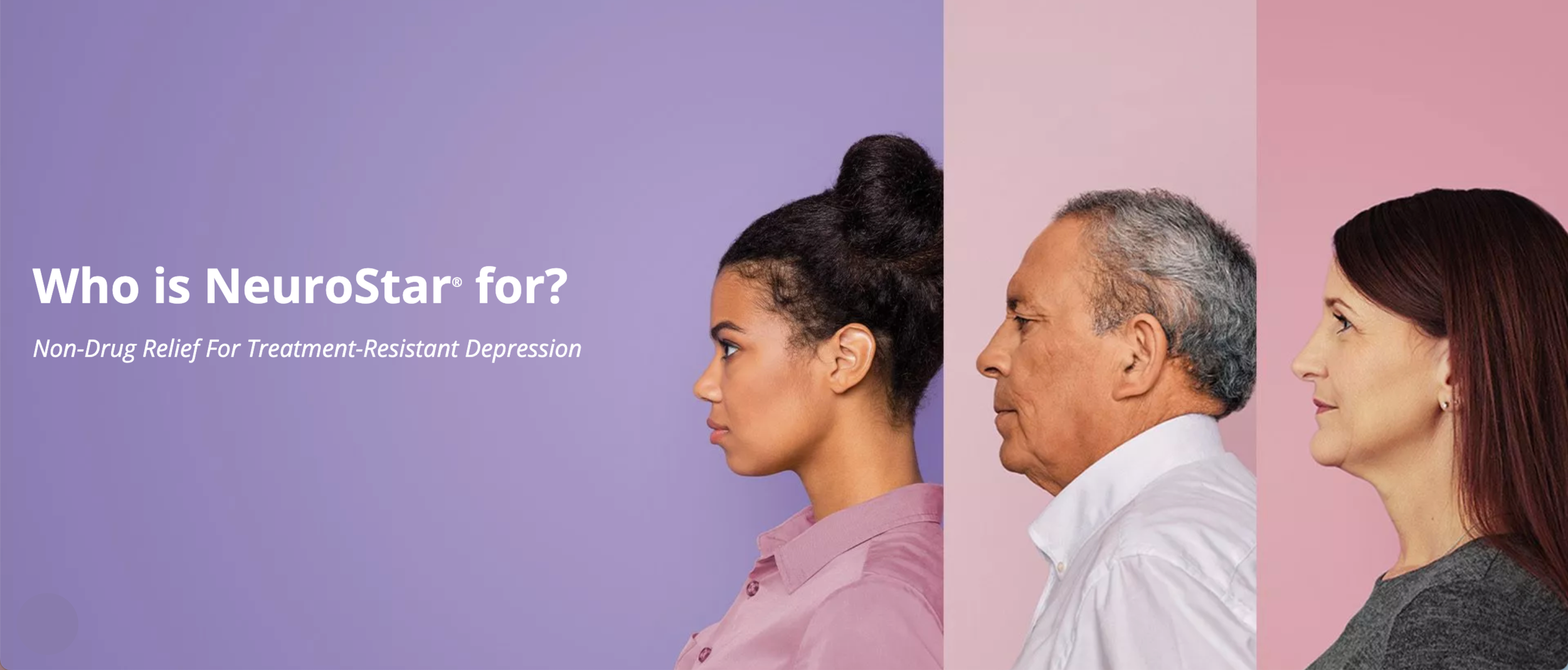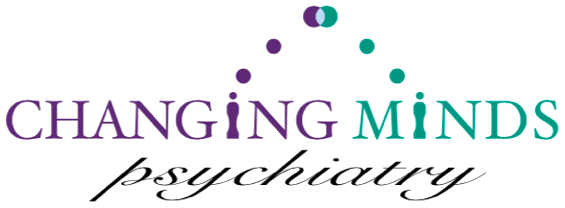About NeuroStar® TMS Therapy
NeuroStar uses transcranial magnetic stimulation (TMS) to target key areas of the brain that are underactive in people with depression. It is not ECT (electroconvulsive therapy). While the exact cause of depression is not known, the leading scientific theory is that it is caused by an imbalance of the brain’s neurotransmitters, which are chemical messengers that send signals between brain cells.
What is Neurostar Advanced Therapy (TMS)
Taking The First Step
to overcome your first depression.
Schedule a free consultation with our Neutostar coordinator to find out of this treatment is right for you. Schedule a free consultation with our Neutostar coordinator to find out of this treatment is right for you.
During a Neurostar treatment session, a magnet similar in strength to that used in a magnetic resonance image (MR) machine is used to simulate nerve cells in the area of the brain thought to control mood. These magnetic pulses may have a positive effect’s on the brain’s neurotransmitter levels, making long-term remission possible.
Call : (702)405-8088 x 107
Email for TMS inquiries only: TMS@CHANGINGMINDSPSYCH.COM

See if TMS is right for you!
Treatment with NeuroStar Advanced Therapy is easy:
Therapy sessions are conducted in our NeuroStar office
You can return to normal activities right away
You are awake during treatment
There are no negative effects on memory or sleep
It’s covered by most health insurance plans, including Medicare and Tricare
With more than three million treatments delivered, this novel treatment approach to achieving remission is bringing new hope to people every day!
How NeuroStar® TMS Therapy Works
Here’s what you can expect from a NeuroStar Advanced Therapy (TMS) session:
Before Treatment
You’ll recline comfortably in the treatment chair. A small, curved magnetic coil will be positioned lightly on your head.
During Treatment
NeuroStar delivers focused magnetic stimulation directly to the target areas of the brain. You’ll hear a clicking sound and feel a tapping sensation on your head.
After Treatment
NeuroStar Advanced Therapy:
Depending on your doctor’s recommendation, each treatment takes between 19 and 37 minutes.
You can resume normal activities immediately.
Because there are no effects on alertness or memory, you can drive yourself to and from treatment sessions.
In-office treatment with NeuroStar TMS Therapy typically takes 19-37 minutes and is administered 5 days a week for approximately 4-6 weeks.
We asked our Changing Minds patients why NeuroStar worked for them.
-

Caryns' Answer
"The TMS program gave me a glimpse of hope in a battle that I felt defeated in."
-

Ben's Answer
"I'm having a life that I didn't get to have! NeuroStar definitely relieved the worst symptoms of my depression where everything prior had not been successful.”
-

Sherri's Answer
"TMS is the lifeline that pulled me from a sea of depression that I've been drowning in for so long. I now feel hopeful, instead of hopeless.”
FAQs
What is Transcranial Magnetic Stimulation?
Transcranial magnetic stimulation, often referred to as TMS is a noninvasive procedure that uses magnetic fields to stimulate nerve cells in the brain to improve symptoms of depression. TMS is typically used when antidepressant medications haven’t been effective, have ceased working, or as an alternative to medication.
Is TMS covered by insurance?
A vast majority of commercial and Medicare plans have recognized the effectiveness of treating depression with TMS Therapy and now cover TMS as part of their plans.
Is TMS Therapy like other alternative therapies that use magnets to treat some illnesses?
No. TMS Therapy involves a unique method of using pulsed magnetic fields for a therapeutic benefit. The intensity of the magnetic field is similar to that of an MRI. These techniques differ radically from the popular use of low intensity, static magnetic fields. Those products deliver weak and undirected static fields that are not capable of activating brain cells. The activation and stimulation of brain cells is a key part of why TMS is so effective.
Does NeuroStar cause memory loss?
NeuroStar has been systematically evaluated for its effects on memory. These clinical trials demonstrated that NeuroStar does not result in any adverse effects on memory or concentration.9
How does TMS work?
TMS involves delivering magnetic pulses to specific parts of the brain
How long is TMS Treatment?
A typical initial course of treatment is about 19-37 minutes daily over 4-6 weeks.
Is TMS a good alternative for patients that cannot tolerate the side effects of antidepressant medications?
TMS does not circulate in the blood throughout the body, so it does not have side effects like weight gain, sexual dysfunction, nausea, dry mouth, sedation, etc. The most common side effects reported during clinical trials were headache and scalp discomfort —generally mild to moderate—occurring less frequently after the first week of treatment.
“Does it hurt?”
During the session, you will feel a tapping sensation on your head. Each treatment session lasts around 19 minutes. Some NeuroStar patients experience mild to moderate pain or discomfort at or near the treatment site during the first week of treatment. This is usually temporary and subsides in subsequent treatments. Click here for a full list of possible side effects associated with NeuroStar.








